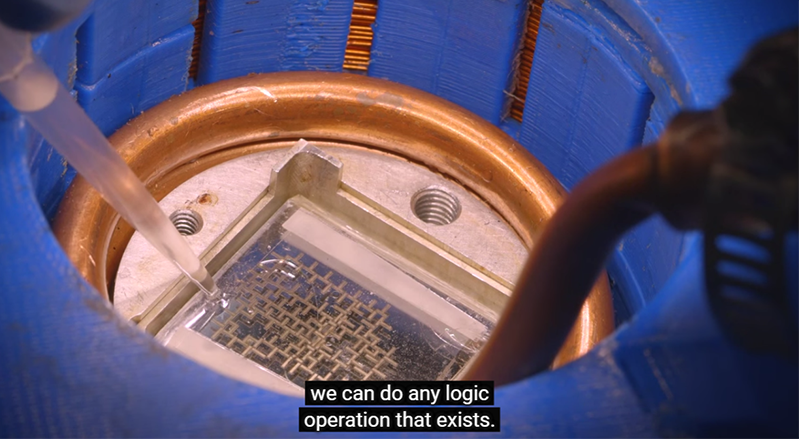
Scientists at the Stanford University have developed the first working computer powered by water droplets.
The researchers, led by Stanford Bioengineering Assistant Professor Manu Prakash posted a video of how water droplets power the "computer," which is basically a synchronous computerized clock. Prakash explained that the gadget is not like the commercially available computers, but was developed as a new class of computer that will have the capability to manipulate and control physical matters, according to Benchmark Reporter.
He explained the computer works using a rotating motherboard that is a tiny maze of iron bars held in oil between to glass slides. Power is created using water droplets infused with magnetic nanoparticles that are pulled from the flipping of the electromagnetic field each time the clock is turned. With the synchronized movement and turning of the clock, the water droplets march one step at a time following a predetermined logic of the computer system.
The polarity of the bars changes every time the magnetic field turns, allowing the droplets to move through the maze and running forever.
The computer system works with clockwork precision and researchers said they could still reduce the size of the computer to allow them to develop chips using smaller droplets and increase its usability.
Georgios Katsikis, a student of Prakash and one of his co-developers in the project, stated, "Following these rules, we've demonstrated that we can make all the universal logic gates used in electronics, simply by changing the layout of the bars on the chip. The actual design space in our platform is incredibly rich. Give us any Boolean logic circuit in the world, and we can build it with these little magnetic droplets moving around."
Prakash, a graduate student at the Massachusetts Institute of Technology, said he first envisioned a water-powered computer ten years ago, reported Christian Science Monitor.
"The reason computers work so precisely is that every operation happens synchronously; it's what made digital logic so powerful in the first place," Prakash said in a Stanford News report.
Prakash and his team, including another one of his graduate students, Jim Cybulski, said they do not believe their water-powered computer will replace the digital computers we are currently using. But he added, other researchers could further enhance their clock.
"We already have digital computers to process information. Our goal is not to compete with electronic computers or to operate word processors on this," Prakash added "Our goal is to build a completely new class of computers that can precisely control and manipulate physical matter. Imagine if when you run a set of computations that not only information is processed but physical matter is algorithmically manipulated as well. We have just made this possible at the mesoscale."
Prakash they are now in the process of making the motherboards available to the public and hope that other researchers would further improve its applications, and hopefully, build new computers using the system.







